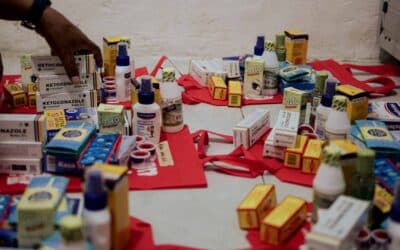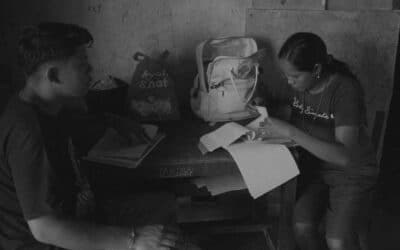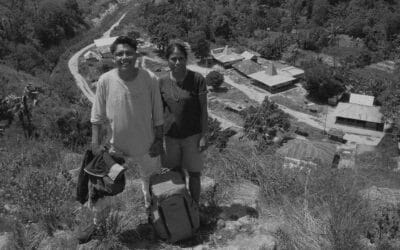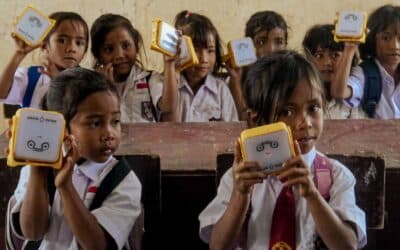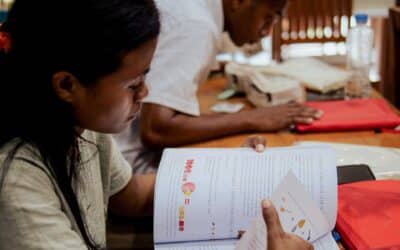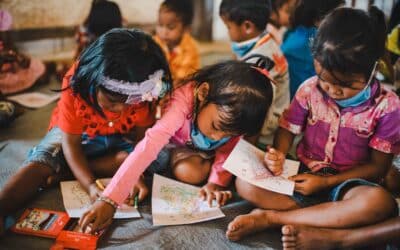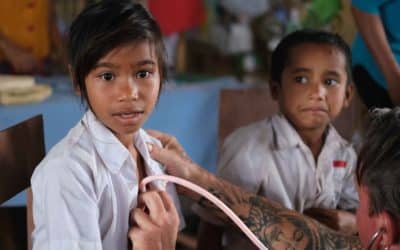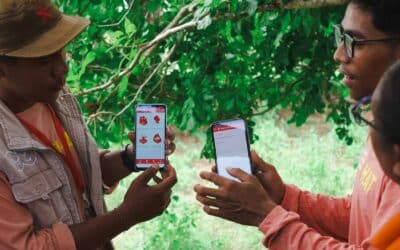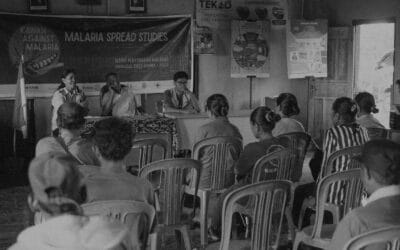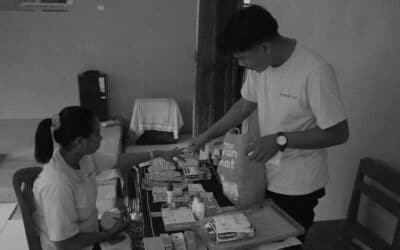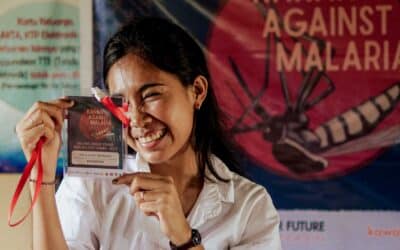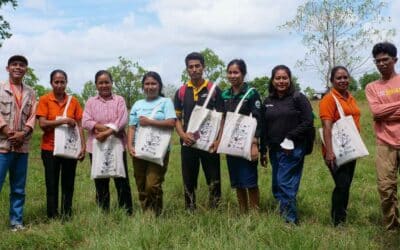Erwin prepares life-saving medical kits for health agents working in villages without doctors, pharmacies, or roads. Logistics becomes a vital part of healthcare for thousands in East Sumba.
After years of walking to find dirty water, villages like Laindatang, Hambarita or Mbinudita can now access clean water from community reservoirs they built themselves. Clean water reduces diarrhea, skin infections, and fear. This is a true reflection of dignity in daily life.
Donate
Support Care
Programs
All projects
Quick News
Field updates
Stories
Field stories
Rambu Anggi Cares for Laindatang
MediRider Brings Health to Remote Sumba
Solar lamp delay impacts remote schools
A shipping delay has pushed back the arrival of 2,224 SolarBuddy lamps in East Sumba by around 15 days. This setback disrupts our plans—but it won’t stop us. We adapt, reschedule, and continue to fight for those without light, electricity, or access to healthcare. We will be ready by June 10th.
Empowering Women and Communities
The Empowerment Program builds bridges between exclusion and access. We support women, minorities, and isolated communities by improving infrastructure, ensuring inclusion, and fostering autonomy through concrete action.
Education as Health in Rural East Indonesia
In remote areas of East Indonesia, every lesson is a shield. Schools are not just for learning—they’re places of care, protection, and disease prevention for children and their families.
Health for Every Child
Child Health is one of Fair Future’s core programs. In ultra-remote areas without doctors, we provide essential medical care to children, treating wounds, infections, malaria, and more through field clinics and trained health agents.
Kawan Against Malaria Empowers Local Communities
Fair Future's new Kawan Against Malaria app is transforming the battle against malaria in East Sumba. It integrates...
Malaria Spread Studies Training in Sumba
Healthcare and Nutrition Education in Lapinu
Training Days for Malaria Study Using Kawan App
Fair Future led two days of training to prepare local teams for a vital Malaria Spread Study using the Kawan Against Malaria App. 400 homes in Umalulu will be surveyed to guide better prevention strategies.




